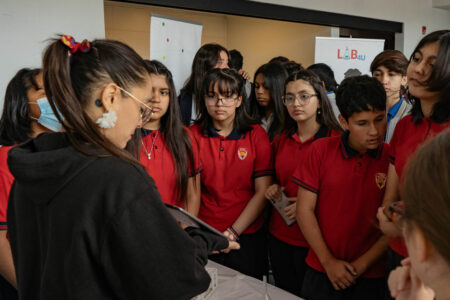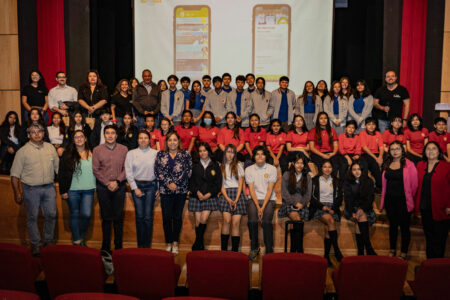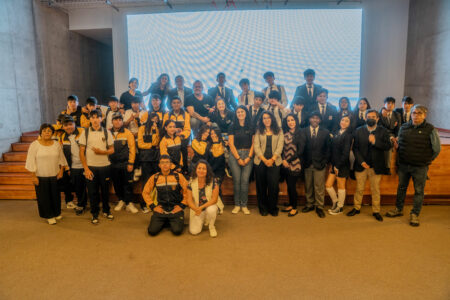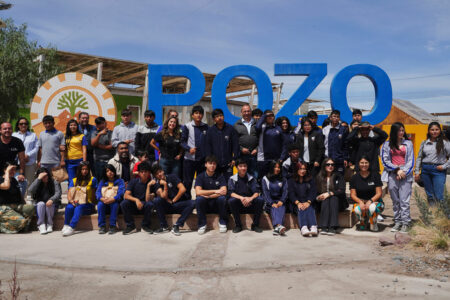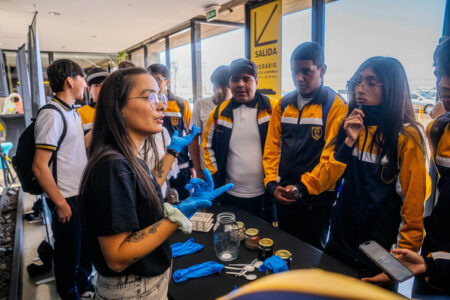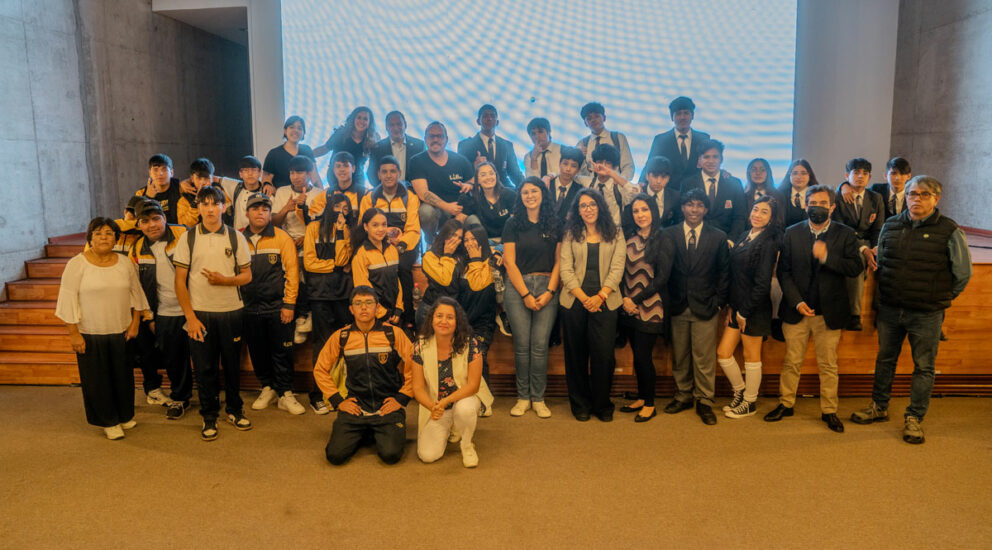
Successful closing of third version of NorTEduca, an innovative program promoting STEM education in northern Chile
07/Dec/2023
● In 2023, the program grew from five to seven beneficiary schools in order to positively impact more and more families, students and teachers in the regions of Tarapacá and Antofagasta.
● During the various closing activities, students were able to participate in SQM Labs, experiments for students to learn about mining industry processes.
SQM, in partnership with the Chilean EdTech startup Lab4U, successfully completed the third version of the NorTEduca program, created to help improve the quality of education in schools located in northern Chile.
The program, which this year grew from five to seven beneficiary schools, seeks to positively impact more and more families, students and teachers in the regions of Tarapacá and Antofagasta. The schools participating in this third version were Metodista William Taylor Bicentennial High School in Alto Hospicio; Alcalde Sergio González G. High School in Pozo Almonte; Carlos Condell de la Haza School, Diego Portales Polytechnic High School and Sagrada Familia School in Tocopilla and Mayor General Oscar Bonilla High School and Eulogio Gordo Moreo Industrial High School in Antofagasta.
To wrap up the program, NorTEduca organized three successful activities: on Tuesday at the Huanchaca Ruins in Antofagasta, on Wednesday at the Andrés Pérez Theater in Tocopilla and on Thursday at the Performing Arts Center in Pozo Almonte, attended by regional authorities, representatives of the organizing companies, students and teachers who were part of the program.
At each event, the results from the year were presented, awards were given to outstanding teachers and, above all, the students had a chance to take part in different experiments through SQM Labs, an initiative to help students learn about mining industry processes. Through the “arable soils” experiment, for example, they learned how to examine different types of soil and their implications for farming, while the “moving pulp” experiment taught them to analyze the factors that can influence the mobility of a fluid.
During the year, SQM, in partnership with the Chilean EdTech startup Lab4U, developed various practical activities with students and teachers to promote STEM (Science, Technology, Engineering and Mathematics) education, which is the focus of Lab4U. This organization transforms smartphones and tablets into pocket laboratories through its applications such as Lab4Biology, Lab4Physics and Lab4Chemistry.
This year, the NorTEduca program once again confirmed its commitment to promoting quality education in northern Chile, improving student learning with innovative methodologies, training, materials and teaching strategies in order to motivate young people to pursue careers that enhance STEM skills, improving their future professional development.
About the initiative, Pablo Pisani, Community Affairs Manager for SQM’s Nitrate Iodine Division, commented: “We are very proud of the results we have obtained by implementing this educational program. Through technology and innovative teaching methodologies, we can help strengthen the educational process of students in the regions of Antofagasta and Tarapacá, awakening in them a special interest in Science, Technology, Engineering and Mathematics (STEM).
Komal Dadlani, scientist, CEO and co-founder of Lab4U, commented that “It has been three successful years of NorTEduca and we are very happy because we have been able to see the positive impact it has on children, adolescents and their families. Having STEM skills and tools is not only essential for their academic preparation and professional future, but also allows them to broaden their vision and boost their integral development and social mobility. We are pleased that there are companies like SQM that are committed to making a social investment in education and with whom we share the objective that this contributes to a more equitable, creative society that is better prepared to face its own future and build a better tomorrow for its ecosystem.”
